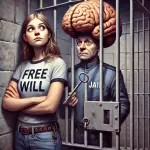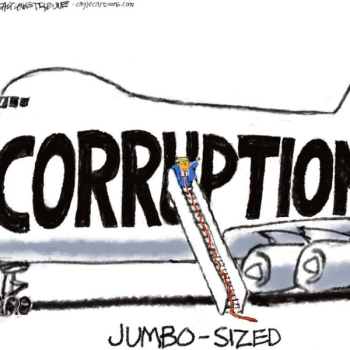Braden Molhoek on Free Will & Cultivating Virtuous Habits
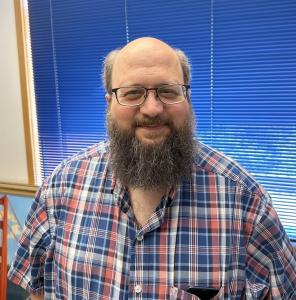
Professor Anselm Ramelo and doctoral student Chang In Sohn have kicked off Patheos/Substack series on the knotty problem of free will in light of biological determinism. All discussants to this point grant that the brain and the body’s habits constrain free decision-making. If free will genuinely exists and we are not living in a delusion, then our exercise of free will takes place within a set of constraints determined by both nature and nurture.
I’ve asked Braden Molhoek to weigh in here. In recent years Professor Molhoek has looked into the deterministic influence of genetic expression and into the development of virtuous habits. Here are his thoughts.
Meet Braden Molhoek
Braden Molhoek is Director of the Center for Theology and the Natural Sciences (CTNS) and the Ian G. Barbour Assistant Professor of Theology, Science, Ethics, and Technology at the Graduate Theological Union. His research interests focus on emerging technology and its theological and ethical implications, particularly for human nature and highlighting insights from virtue ethics. He has published and presented on topics including gene editing and virtue, transhumanism and theological anthropology, AI and human moral deliberation, and computer-brain interfaces and acquired and infused virtue.
Free Will within Constraints
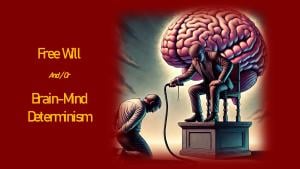 Braden Molhoek writes. Recently I was returning home from a conference, and I was chatting with my Uber driver. He said that people do not get to pick some of the most important things about their lives. Even though the argument he was making was ultimately about the arbitrary nature of things that humans take seriously but that should not matter, I think it is an interesting place to begin responding to the question of free will.
Braden Molhoek writes. Recently I was returning home from a conference, and I was chatting with my Uber driver. He said that people do not get to pick some of the most important things about their lives. Even though the argument he was making was ultimately about the arbitrary nature of things that humans take seriously but that should not matter, I think it is an interesting place to begin responding to the question of free will.
In my opinion, free will is often presented as a zero-sum game: humans are either totally free or free will does not exist at all. Ultimately, I believe that both of these “extreme” positions are too simplistic. It is clear that total freedom does not exist. There are constraints to the choices you and I make. Some of them are based on the nature of reality, such as the laws of physics, while others are a little more personal, such as our genes and habits.
While there are some traits or characteristics that are determined completely by one or more genes, most of our traits are only partially determined by our genetics. We have predispositions towards certain behaviors, but it is still possible for us to choose otherwise. Even then this choice is not one of unlimited options. To deny this is to deny the possibility of human responsibility, and I recommend Nancey Murphy’s book “Did My Neurons Make Me Do It?: Philosophical and Neurobiological Perspectives on Moral Responsibility and Free Will. Murphy writes from a perspective of nonreductive physicalism.
Free Will in Virtue Ethics
My understanding of free will is shaped by virtue ethics. Virtues are stable dispositions of character cultivated through habituation. If you want to become courageous, you do courageous things. You learnand maybe start by imitating the actions of an exemplar, someone people recognize as brave. Aristotle referred to virtues as the golden mean between the vice of excess and the vice of deficiency of a characteristic.
So courage, for example, is the mean between the deficiency of cowardice and the excess of recklessness. However, what constitutes the specific golden mean is different for every individual, because we are each shaped by our own natural dispositions. For someone who hates being the center of attention or gets nervous speaking in front of a large crowd, giving a conference presentation could be courageous, whereas it might not be for someone who loves being the center of attention and enjoys sharing their views with others. Our genetics, our learned behaviors, and the effects of sin all shape our moral deliberations, shaping what we imagine is possible, constraining the range of options we have to choose from, and our resulting decisions also impact our future decisions.
Such perspectives are more complicated than an all or nothing understanding of free will. But I believe this is how things work. It is not just nature versus nurture. There is nurture in nature and nature in nurture.
Genes affect our behaviors, and our behaviors affect our genes. Genetic predispositions shape behaviors that influence the behaviors of the children. The behavior of the children affect the decisions parents make when raising their children. Epigenetic factors influence what future children will be born to these parents.
Our habits developed over time eliminate the need in each instant to deliberate, decide, and take action. Much of our body and mind run on autopilot, an autopilot we choose to guide our behavior.
When navigating our day via our own cultivated habits, it may feel like we are acting on autopilot and do not exercise choice. But it is possible to still act contrary to those cultivated predispositions. This for me is the core of free will.
In virtue ethics, people speak of infused virtue. This is where God gives someone virtue, similar to how someone might temporarily be able to lift an object they might not otherwise when in an emergency. This has been dubbed as “hysterical strength.” Such cases, though, are more the exception than the rule.
In order to write this response, I need to prioritize exploring this topic and crafting this post over other priorities. Perhaps I would not have found enough to say without the prompting conversation with my Uber driver.
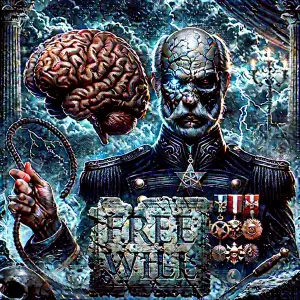
Conclusion
I will conclude by arguing that if we want to increase the range of possibilities of our free will, we need to expand what we believe is possible, engage with perspectives that are different from our own, and recognize that we will always be constrained materially, whether that be from the laws of nature or financially. Aristotle argued for a baseline of external goods in order to be virtuous, but this just leads us into a larger conversation beyond the scope of the topic at hand.
Patheos SR 1023 Braden Molhoek on Free Will
Patheos SR 2002 Did I lose my conscious mind to science?
Patheos SR 2003 Did I lose my free will to science?
Patheos SR 2004 Did I lose my inborn sense of God to Atheism?
Patheos SR 2005 Did I lose my self to my brain?
Patheos SR 2006 Did I lose my self to determinism?
Patheos SR 2007 Did I lose my self to Christian freedom?
Substack SR 1020 Anselm Ramelow, AI, and Free Will
Substack SR 1021 Chang In Sohn Puts Free Will in Jail
Patheos SR 1022 Is our free will really in jail?


